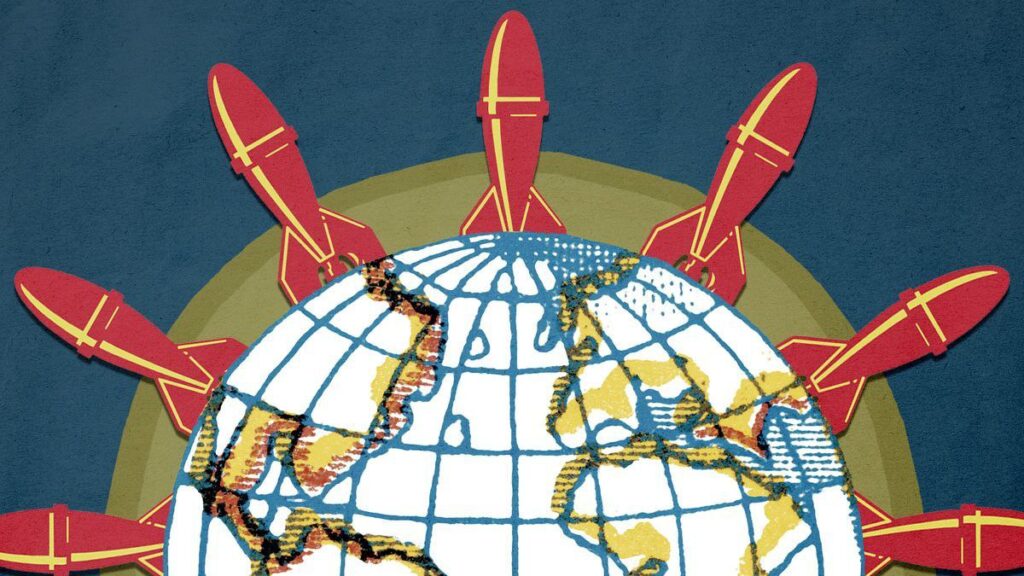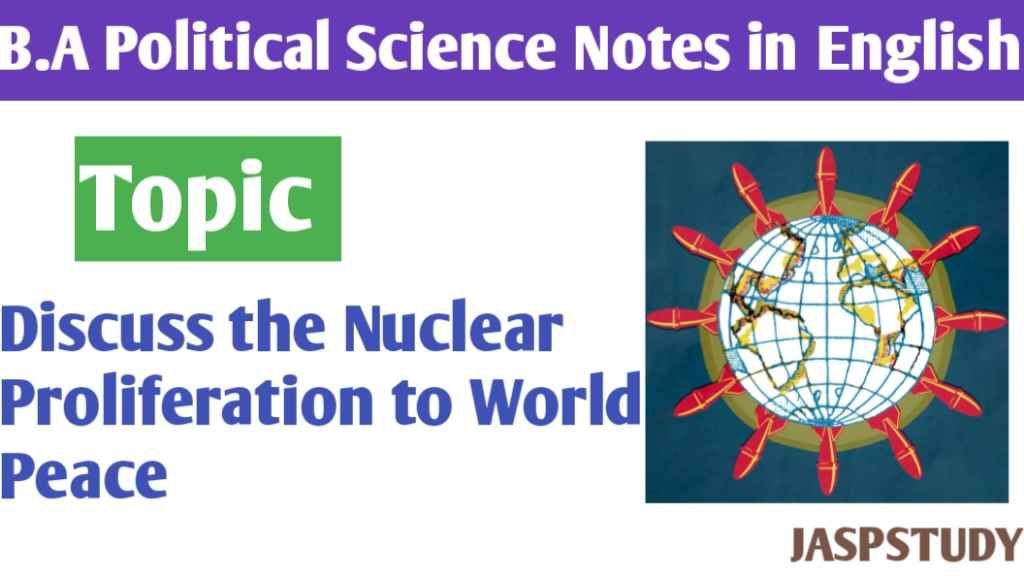In this Article we will discuss about The Dangers of Nuclear Proliferation to World Peace. Nuclear proliferation is the spread of Nuclear technology, deadly nuclear weapons that can cause mass destruction, and fissile materials to the those countries that yet not have these abilities. we’ll discuss all aspects of this topic.
Introduction
Nuclear proliferation refers to the spread of nuclear weapons to countries that did not previously have them. This is a major threat to world peace for several reasons, as nuclear weapons have the potential to cause widespread destruction, increase tensions between nations, and lead to dangerous situations where accidents or conflicts could trigger their use. The spread of nuclear weapons can make the world more unstable and unsafe, putting millions of lives at risk.

Dangers of Nuclear Proliferation to world peace
1. Increased Risk of Nuclear War
The most obvious danger of nuclear proliferation to world peace is the increased risk of a nuclear war. Nuclear weapons are extremely powerful and can cause mass destruction. If multiple countries have these weapons, there is a higher chance of them being used in a conflict. Even small misunderstandings or mistakes could lead to a nuclear war. For example, if two nuclear-armed countries get into a disagreement, they might threaten each other with nuclear strikes. This could quickly escalate into a situation where nuclear weapons are actually used. A nuclear war would cause unimaginable loss of life and long-lasting environmental damage.
2. Nuclear Arms Races
When one country develops nuclear weapons, other countries may feel threatened and start developing their own nuclear arsenals to defend themselves. This leads to a nuclear arms race, where countries try to build more and more powerful weapons to stay ahead of each other. An arms race makes the world more dangerous because it increases the number of nuclear weapons, raising the possibility that one of them could be used. Countries also spend large amounts of money on weapons instead of using that money for other important needs, like healthcare, education, or poverty reduction.
- Difference between Constitution and Constitutionalism
- Traditional Methods of Comparative Study
- General Characteristics of Traditional Comparative Politics
- Main features of constitutionalism
- Growth of the Executive Powers in Modern Time
- Discuss the Main features of Present World Order
- Main features of Realist Approach in the study of International Relations
3. Threat of Nuclear Weapons Falling into the Wrong Hands
Another danger of nuclear proliferation is that nuclear weapons could fall into the hands of dangerous groups, such as terrorist organizations or criminals. These groups may not have the same responsibility or caution as nation-states and could use nuclear weapons for violent purposes. If a terrorist group were to acquire a nuclear weapon, it could cause massive destruction and loss of life. There are also concerns that unstable or rogue governments could use nuclear weapons irresponsibly, leading to disaster.
4. Increased Global Tensions
When countries develop nuclear weapons, it can cause tensions between nations, especially between neighboring countries. For example, if one country builds nuclear weapons, its neighbors may feel more insecure and may also begin developing their own nuclear weapons. This creates a dangerous situation where countries are constantly worried about each other’s military capabilities, which can lead to political instability and even conflict. Countries may be more likely to act aggressively or make threats, knowing they have nuclear weapons as a deterrent. This can make it harder to resolve conflicts peacefully, as diplomatic solutions become less likely.
5. Potential for Accidents or Miscalculations
One of the dangers of having many countries with nuclear weapons is the possibility of accidents or miscalculations. Nuclear weapons are complex and require careful handling. If a country mistakenly launches a nuclear missile or misinterprets another country’s actions as a nuclear threat, it could trigger a chain of events leading to a nuclear conflict. Even if countries do not want to use their nuclear weapons, the possibility of human error, technological failure, or misunderstanding could still lead to disaster. In such a high-stakes environment, it becomes harder to ensure safety and control.
6.Environmental and Humanitarian Disaster
The use of nuclear weapons would have devastating effects on the environment and the people living in the affected areas. A nuclear explosion can destroy entire cities, kill millions of people, and cause long-term health problems, such as radiation sickness, cancer, and birth defects. The explosion also releases harmful radiation that can spread across countries, affecting food, water, and air for many years. Even countries not directly involved in a nuclear conflict would suffer from the environmental damage. This would cause a global humanitarian crisis, with millions of people needing help to recover from the aftermath.
Conclusion
Nuclear proliferation is one of the most serious threats to world peace today. It increases the risk of nuclear war, creates arms races, raises the possibility of nuclear weapons falling into the wrong hands, and heightens tensions between countries. The potential for accidents, misunderstandings, or irresponsible use of nuclear weapons makes the situation even more dangerous. The consequences of nuclear war would be catastrophic, not only for the countries involved but for the entire world.
To ensure a peaceful and secure future, countries must work together to prevent the spread of nuclear weapons and work towards disarmament. The world needs to focus on diplomacy, peace-building, and cooperation to reduce the dangers of nuclear proliferation and create a safer future for everyone.


It’s a pity you don’t have a donate button! I’d definitely donate to this brilliant blog! I guess for now i’ll settle for book-marking and adding your RSS feed to my Google account. I look forward to brand new updates and will talk about this website with my Facebook group. Chat soon!